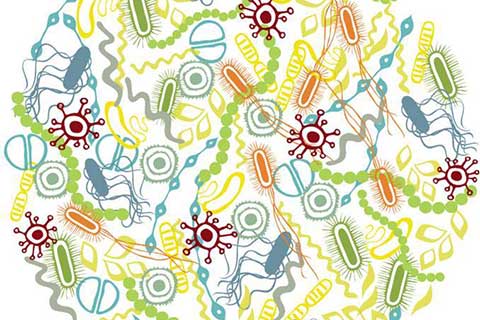
Summary
|
This proposal aims to build a translational research platform to better understand the role that abnormalities in the microbiome—the large, diverse populations of bacteria, viruses, and fungi that occupy almost every surface of the human body—play in the development and progression of chronic diseases, beginning with HIV/AIDS.
Team members hope that by pinpointing the underlying mechanisms that dysregulate the microbiome—leading to what’s known as dysbiosis—in substance abusers with HIV/AIDS, they will discover a common biological pathway that increases the risk for chronic diseases, and the potential for developing behavioral and biomedical interventions to halt their development, or progression.
“The efforts of our team to begin to address this interdisciplinary area of scientific inquiry in substance users are a crucial first step to build a vibrant portfolio of research targeting dysbiosis to optimize health outcomes,” said team member Adam Carrico, associate professor of public health sciences at the Miller School of Medicine.
|
Team
|
Adam Carrico, Public Health Sciences; Sabita Roy, Surgery; Maria Alcaide, Medicine; Hansel Tookes, Medicine; Savita Pahwa, Medicine; and Xi (Steven) Chen, Public Health Sciences; Michael Antoni, Psychology; Vera Spika, Learning and Research Services Librarian |




